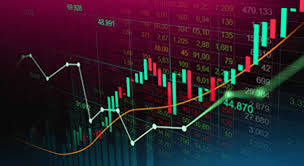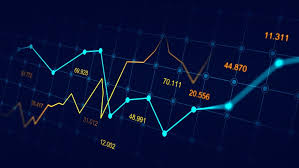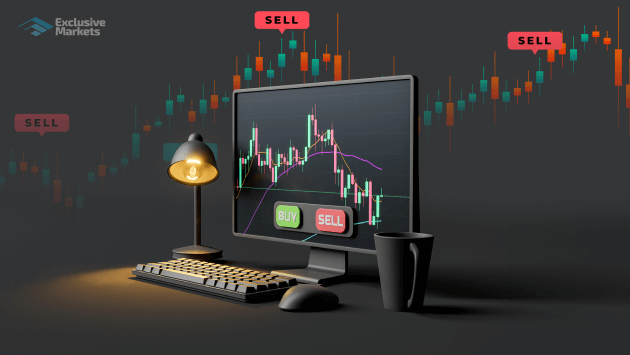
Choosing the Right Forex Trading Broker: A Comprehensive Guide
The world of Forex trading can be an exhilarating yet daunting endeavor. One of the most crucial steps for both novice and experienced traders is selecting the right Forex trading broker. A broker serves as an intermediary between the trader and the market, facilitating trades and providing essential tools and resources. In this guide, we will explore factors to consider when choosing a broker, and how platforms like forex trading broker ex-zar.com can assist traders in their journeys.
Understanding Forex Brokers
Before diving into the specifics of choosing a broker, it’s important to understand what Forex brokers are and the different types that exist. Forex brokers are firms that act as a bridge between traders and the currency markets. They offer trading platforms for clients to execute their trades. There are typically two types of brokers: market makers and ECN (Electronic Communication Network) brokers.
Market makers create their own quotes for currencies and profit from the spread between the buy and sell prices. On the other hand, ECN brokers connect traders directly to the market, allowing them to execute trades at the best available prices. Each type has its own advantages and disadvantages, which we’ll explore in detail.
Key Factors to Consider When Choosing a Forex Broker
1. Regulation and Security
One of the primary factors to consider is regulation. A regulated broker is overseen by a governing body, providing a level of security and accountability. Regulatory bodies, such as the Financial Conduct Authority (FCA) in the UK or the Commodity Futures Trading Commission (CFTC) in the USA, ensure that brokers operate fairly and transparently. Make sure to verify that your chosen broker is licensed in your jurisdiction to safeguard your funds.

2. Trading Costs
Understanding the costs associated with trading is paramount. These costs typically include spreads, commissions, and overnight fees. Brokers may offer different types of accounts with varying costs, so it’s essential to compare these factors among potential brokers. Look for brokers who offer competitive spreads and the possibility of commission-free trading if that aligns with your trading strategy.
3. Trading Platforms and Tools
The trading platform is the main interface through which you will execute your trades. It’s vital to choose a broker that provides a user-friendly platform equipped with robust trading tools. Many brokers offer platforms like MetaTrader 4 (MT4) or MetaTrader 5 (MT5), which provide advanced charting options and automated trading capabilities. Furthermore, the availability of mobile trading applications can enhance your trading experience, allowing you to trade on the go.
4. Customer Service
Efficient customer service can make a significant difference in your trading experience. When issues arise, you want to ensure that support is readily available. Check the availability of customer service channels such as live chat, email, and phone support. It’s also beneficial to read reviews from other traders to gauge their experiences with the broker’s support team.
5. Account Types and Minimum Deposits
Different brokers offer various account types that cater to different trading styles and experience levels. Some may offer demo accounts, which allow you to practice trading with virtual funds before risking real money. The minimum deposit requirements can vary significantly between brokers, so make sure to choose one that fits your budget and trading goals.
Understanding Leverage and Margin

Leverage is a double-edged sword in Forex trading. It allows traders to control larger positions with a smaller amount of capital. For example, if a broker offers a leverage ratio of 100:1, you can control a $10,000 position with just $100. While this can amplify profits, it also increases the risk of substantial losses. Make sure to understand how margin works and select a leverage level you are comfortable with.
The Importance of Research
Before making a final decision, it’s beneficial to conduct thorough research. Read reviews, compare features, and test out demo accounts to get a feel for the broker’s platform. Additionally, utilizing comparison websites can provide insights into the pros and cons of various brokers at a glance.
Popular Forex Trading Brokers
There are numerous Forex brokers available today, each offering unique features and services. Some of the most respected ones include:
- Forex.com: Known for its comprehensive trading tools and educational resources.
- IG Markets: Offers a user-friendly platform and a wide variety of markets to trade.
- OANDA: Renowned for its transparent pricing and strong regulatory standing.
- CMC Markets: Offers excellent market research tools and a wide range of markets.
Platforms such as ex-zar.com can facilitate comparisons among these brokers, helping you make an informed choice.
Final Thoughts
Selecting the right Forex trading broker is a critical step that can significantly impact your trading experience and success. By considering factors such as regulation, trading costs, platform features, and customer service, you can find a broker that aligns with your trading goals. Remember to conduct your due diligence and leverage resources available to ensure you make a well-informed choice. Whether you are a beginner or an experienced trader, the right broker can pave the way for your success in the Forex market.
